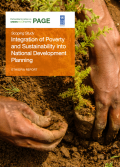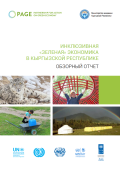
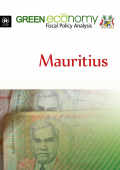
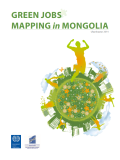
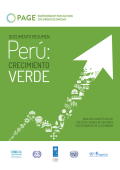
Este documento Peru: Green Growth - Quantitative Analysis of Green Policies in Selected Economic Sectors presenta un resumen del estudio “Perú: Crecimiento Verde: análisis cuantitativo de políticas verdes en sectores seleccionados de la economía”, que se basa en un análisis cuantitativo de la economía peruana, específicamente en agricultura, forestal y transporte urbano. Este estudio es el resultado del primer ejercicio, en términos de investigación académica, que ofrece a los responsables de las políticas públicas, la academia, las instituciones de investigación, los partidos políticos, los trabajadores y todos los agentes económicos que toman decisiones de inversión, un modelo de evaluación de los impactos de políticas públicas de los sectores mencionados, en un horizonte de largo plazo -veinte años-, para reconocer y proyectar los beneficios de una economía verde e inclusiva en el país.
